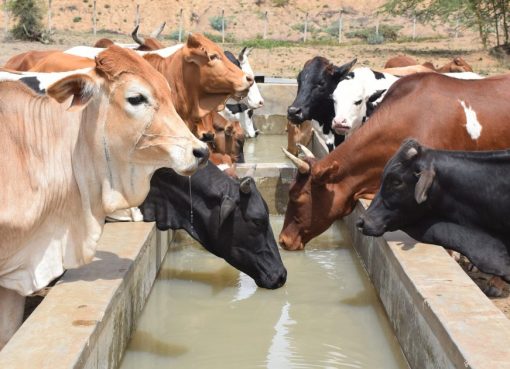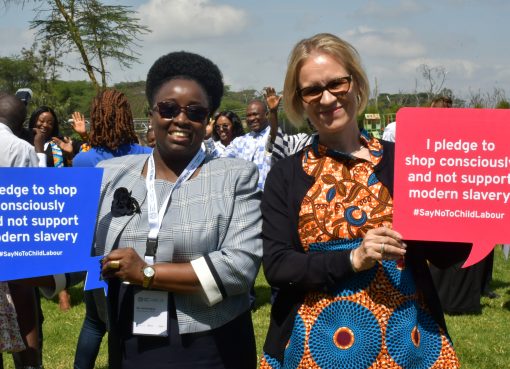Adoption of digital technology and mechanisation is poised to revolutionise agriculture in Africa and help the continent meet its food requirements, which have been under pressure from the growing population and the effects of climate change.
Agricultural Technology Foundation (AATF) Executive Director Dr. Canisius Kanangire said that the adoption of innovations such as seed-based technologies, which bring improved varieties, mechanisation, and post-harvest technologies can greatly improve food production on the continent.
Addressing the press in Nairobi on Wednesday on the sidelines of the inaugural African Conference on Agricultural Technology (ACAT), Kanangire said that the application of digital technologies like the internet is something that can be used at different levels; for instance, in the field, it can be used to monitor the health of crops.

“This is possible when one goes to the field, takes a photo of the crops, posts them on the internet, and someone will tell them what nutrients their crop is missing,” said Kanangire.
He explained that through the internet and other electronic means, the farmers can also receive knowledge and ask questions where they get prompt answers, which promotes the culture of knowledge and technology transfer.
“Through technology, we can now link the farmers to markets where they can source for online markets or aggregate as farmers and sell their produce in bulk, thus attracting better prices,” said Kanangire.
Kanangire explained that some farmers who have very vast lands have been using drones to survey their farms and identify problems by looking at the nature of the leaves, while others are also using drones to spray their farms.
“In Nigeria, there are huge farms of up to 400 hectares with only cassava, and they are surveyed with drones, which give information on the level of soil nutrients in patches of land by observing the colour of the leaves and areas where weeds are intense. This kind of technology leads one to apply the needed correction in terms of ingredients like fertiliser where it is needed and not apply it on the whole farm,” explained Kanangire.
He said that this kind of precision agriculture that technology has brought about and its adoption by smallholder farmers, in particular, will drive the quest for food security in Africa.
Kanangire encouraged smallholder farmers to install solar panels, which will solve their energy problems as they can use solar to pump water for irrigation, light their houses, and charge their phones, which they use to access information.
He at the same time called on researchers to break down their findings into simple and understandable language which the not-so-educated smallholder farmers can understand, and this will help in fighting the lack of information or misinformation that the farmers face.
“We only need to inform the farmers of how the new technologies are developed and how they are going to benefit them instead of using complex language,” said Kanangire, adding that giving testimonies of farmers who have used these technologies and their benefits in terms of resistance to insects and diseases, expenditure on pesticides, and their safety would also help in their adoption.
He explained that this is one of the reasons for the ACAT conference, whose aim is to bring the right information to stakeholders by engaging experts in various fields who interact with smallholder farmers and their representatives.
Kanangire said that with proper policy and funding, African countries are well on track to meet their food needs, like Zambia and Ethiopia, who have been able to fill the gap between the need and production of wheat in their countries.
He therefore called on African governments to meet their budgetary allocation of 10 per cent for the agriculture sector in line with the Maputo Declaration on Accelerated Agricultural Growth and Transformation for Shared Prosperity and Improved Livelihoods.
He said that the funding will help with investments in research and development and building the capacity of local institutions to come up with local solutions like certified seed production and extension services, which will boost food production.
By Joseph Ng’ang’a





